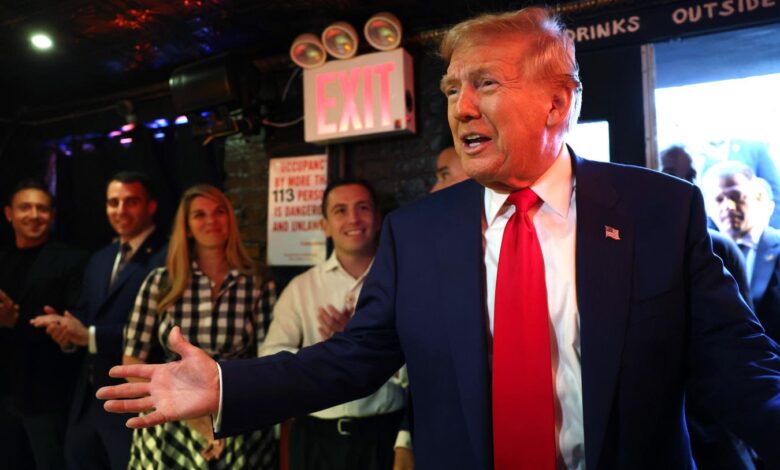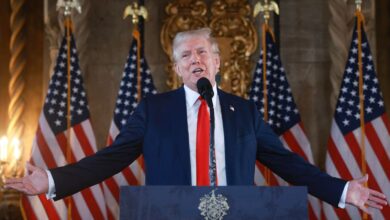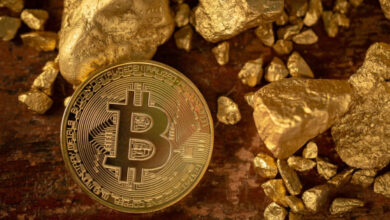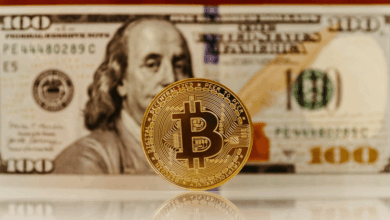Nations nations are turning to Bitcoin as a strategic reserve asset

NEW YORK, NEW YORK – SEPTEMBER 18: Republican presidential candidate, former US President Donald … [+]
In 2025, Bitcoin will no longer be just a niche investment, but a geopolitical asset. Governments and central banks around the world, from Washington to Zurich, are engaged in discussions about their role in national reserves. Bitcoin is emerging as a competitor to traditional reserve assets such as gold and the US dollar, with the potential to reshape the global monetary system.
Under the Trump administration, the conversation around Bitcoin has changed. President-elect Donald Trump, previously a skeptic, has expressed his support for Bitcoin as a strategic asset, and outlined plans to create a US Bitcoin reserve to promote economic stability.
The administration suggested that holding Bitcoin could protect against inflation and a weak dollar. The proposal has been debated in Congress, where supporters such as Senator Cynthia Lummis have argued that Bitcoin’s limited supply makes it an ideal addition to national reserves. There are still skeptics, but the momentum is undeniable.
Switzerland is also considering taking a similar step. The Swiss National Bank, known for its neutrality and financial expertise, is considering adding Bitcoin to its reserves alongside gold. A public referendum could soon make Switzerland the first country to officially hold Bitcoin as a reserve asset. This step is consistent with the Swiss spirit of innovation and financial independence and could set a precedent for other countries.
Domino effect
When one country adopts Bitcoin, other countries may feel compelled to follow to avoid being left behind. The fear of missing out is not only limited to individual investors, but is a powerful force among governments. In this high-stakes game, early adopters are expected to gain a strategic advantage, strengthening their positions in the transforming global financial system.
The discussion about the strategic reserve reflects the twentieth century nuclear arms race in terms of its destructive potential and competitive nature. Countries that fail to act risk being marginalized as Bitcoin becomes ingrained in the financial system.
History provides a clue. Countries that recognized the value of gold early strengthened their positions in global finance. Later, oil became the crucial asset that shaped geopolitics. Bitcoin, with its digital scarcity and global liquidity, could be the next critical asset to reshape geopolitics.
Global transformation
As Bitcoin’s geopolitical importance grows, discussions about its role in national reserves are beginning to emerge outside the United States and Switzerland. Countries such as Germany, Hong Kong, Russia, Brazil, and Poland are taking steps to explore Bitcoin as a strategic asset, each driven by unique economic and political motivations.
In Germany, influential voices such as former Finance Minister Christian Lindner have suggested that the European Central Bank and the Bundesbank consider it Bitcoin to reduce dependence on the US dollar.
Hong Kong legislator Wu Jiechuang has called for Bitcoin to be integrated into the city’s financial reserves, with the aim of enhancing economic resilience and stability. Wu said incorporating bitcoin into national reserves is not a new idea, noting that some US states and small countries have already diversified their assets using bitcoin. “If economic forces actively integrate Bitcoin into strategic reserves, its value will stabilize, prompting more countries to follow suit and reduce holdings in traditional assets, causing traditional asset prices to decline and government financial reserves to shrink,” Wu stated.
According to Finance Minister Anton Siluanov. Russia has begun using Bitcoin and other digital currencies in international transactions As part of its strategy to circumvent Western sanctions and reduce dependence on the US dollar. This step shows the efforts made by Russia – Diversifying its financial strategies And restoring economic independence in the face of global financial pressures. Russian companies have begun using domestically mined bitcoin in foreign trade, and President Vladimir Putin has expressed support for digital currencies as alternatives to the traditional dollar-based system.
In South America, Brazil was introduced Bitcoin Sovereign Strategic Reservealso known as RESBit, which aims to allocate some of its international reserves to Bitcoin. Brazil aims to position itself as a leader in financial innovation, diversifying its national reserves while improving its economic independence.
Poland is also considering creating a strategic bitcoin reserve to diversify its financial assets and position itself as a leader in digital finance. Presidential candidate Sławomir Montazin proposed creating a reserve to transform Poland into a center with favorable regulations, low taxes, and supportive participation from banks and regulators.
Cultural and strategic influence
Bitcoin is more than just an economic asset; It symbolizes freedom and decentralization. Its adoption by states demonstrates a commitment to innovation and independence, challenging even authoritarian regimes to adopt its principles.
As central banks face increasing pressure, from inflation to debt crises, Bitcoin’s appeal as a reserve asset continues to rise. While the Bank for International Settlements has set limits on exposure to cryptocurrencies, the demand for decentralized reserves continues.
The Trump administration, Switzerland and others exploring Bitcoin reserves are working to create a new financial framework. The game has begun, and those who act first may gain a permanent advantage. For hesitant governments, the message is clear: adapt or risk being left behind in a world where bitcoin sets the rules.
These developments demonstrate the need for countries to explore alternative paths to economic independence and move away from complex and controversial financial instruments. Nation-states now view Bitcoin as a way to enhance sovereignty, hedge against inflation, and signal progress. In 2025, the question is no longer whether Bitcoin will be part of national reserves or shape geopolitics, but to what extent it will play a central role in future economic strategies.
https://imageio.forbes.com/specials-images/imageserve/677799d8029555dc8f298d0f/0x0.jpg?format=jpg&height=900&width=1600&fit=bounds




